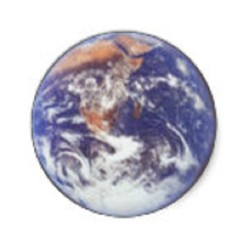In a recent article I gave the conditions that are essential for complex, and therefore for intelligent, life, a rare set of conditions. Questions arose as to whether intelligent life would have to be at a great distance making it harder to detect. The solar system, and parts of it take years to reach with current technology, is the easiest part of space to explore, and we know much more about our own solar system than we do about any other.

Search for Life in Our Solar System
Life in our solar system other than on earth would a major find, and there are but a handful of places we might search, but it is unlikely it will be complex life.
The Search for Life
The search for life involves finding water. Whether we are to find oxygen breathing life forms or carbon dioxide absorbing life forms like plants, water is a major requirement, and it must be in the liquid state. So, we need only examine places where water is found.
To find complex life, including intelligent life, would be a great surprise, for the few candidates where water exists are highly unlikely to harbor complex life forms. Microbial life is another matter, and one or more of the candidates might well have microbial life.
Ganymede
The largest moon in our solar system is Ganymede, and it is believed to have a vast ocean of water, possibly liquid water. The problem here is the ocean, although possibly greater than all of the oceans of the Earth combined, is deep below the surface. The problem this translates to is the food chain would be strained without sunlight to provide photosynthesis enough to sustain plants, and without plants could a real food chain exist? I suppose one could argue that there is no requirement prohibiting complex life from being aquatic, but in the dark oceans beneath the surface it is highly unlikely anything past microbial life exists.
Ganymede is one of the four large moons of Jupiter that were discovered by Galileo. Indeed, it is not the only Jovian moon to contain water.
His subsurface ocean was recently in the news, and I found information on it on Wikipedia simply by looking at the article on Ganymede. It is less often referenced than the next two candidates.
Europa
Europa is another of the Galilean moons of Jupiter, and it has long had the distinction of being a candidate for liquid water and life. Europa has water ice on its surface. I am specific here because other ices do exist, and can be found on moons in our solar system.
Deep below the surface could lie liquid water. It has been speculated that gravity from other Jovian moons and the planet itself might have added enough internal energy to keep the water liquid below the surface. In The Universe series, season 1, it is speculated that liquid water might exist under a mile or so of ice.
This is not likely to support higher forms of life, for the photosynthesis needed for plants to start the food chain is problematic at such depths.
This moon, with its surface ice, is hands off until proper exploration can be conducted. In the past NASA sent a command to a satellite orbiting Jupiter to crash into the planet when the batteries reached a point where they might fail. Under normal conditions the satellite would have been left in orbit and whatever data it transmitted accepted as a bonus, but a craft that could no longer be controlled might happen to crash on Europa, and in making contact with the moon could contaminate it. If life were to be later found it might not be possible to determine if the life had been transported by the spacecraft. Only when a sterile craft is launched will it be allowed to land and explore the subsurface water of Europa.
Enceladus
Enceladus is a moon of Saturn, and it was recently discovered by NASA to be ejecting plumes of water. This was surprising since Enceladus is small, about three hundred miles in diameter. These geysers send material upward and replenish a growing Saturnine ring, the E ring. Of course some water ice falls back as snow and lands on the surface of the tiny moon.
Titan
Titan is Saturn’s largest moon, and the second largest moon in the solar system. We have already considered Ganymede, the largest moon. Titan has oceans or lakes that are made up of hydrocarbons, an important find when searching for life. It also has a nitrogen rich atmosphere, and according The Universe season 1 it is the only moon in our solar system with an expended atmosphere. Fortunately, there is not enough oxygen around. Had it had adequate oxygen, a meteor or comet could easily have produced enough heat that a large explosion would have resulted. Yet, even though there is no known water on Titan it is interesting in the search for life.
Pluto
Pluto is another object with water or water ice in a large quantity below its surface. NASA has just sent New Horizons past Pluto, and the discovery was somewhat surprising. Of course water in the Kuiper Belt is plentiful, and Pluto makes incursions into the Kuiper Belt where much of its orbit lies. Comets, Kuiper Belt objects, frequently have a large ice component.
So, What Can We Expect?
Complex life is not likely in our solar system. Most scientists would be elated with finding microbial life. The focus for even that is narrow, and while another moon might reveal something of interest it is unlikely it would be much different than the moons discussed.
The focus here is that if there is complex life in the universe other than on the earth it is likely not to be in our solar system. And even our nearest neighboring star if a craft left Earth would take generations to reach by our current abilities. So, if there is complex life out there it is not likely we will be aware of it, for the distance to it would be too excessive.
This article contains links to affiliate programs from Zazzle, Viglink, and Ebay through Viglink, and Adsense advertising. These must use cookies to allow for proper crediting.
The introduction image, and the image used on the Zazzle products, is from NASA and is in public domain.
You might also like
Lazarus Syndrome-- When the Dead Come Back to LifeAn unresponsive patient's heart begins to beat several hours after failed CPR...
Book Review: Hubble's Universe: Greatest Discoveries and Lates...Hubble's Universe by Terence Dickinson gives readers the most photogenic of 1...







 The Linear Equation and Related Equations and Inequalitieson 08/15/2024
The Linear Equation and Related Equations and Inequalitieson 08/15/2024
 Understanding Calculus: A Simplified Approach to Derivativeson 08/05/2024
Understanding Calculus: A Simplified Approach to Derivativeson 08/05/2024
 Limits: Vital Building Blocks of Calculuson 08/01/2024
Limits: Vital Building Blocks of Calculuson 08/01/2024
 Mardi Gras Collectibleson 02/02/2023
Mardi Gras Collectibleson 02/02/2023



Comments
In Buddhist philosophy, there is a mention of various types of life. Ours is a mix of mind(waves) and matter. There is a possibility of life which is only waves (spirit), this type of life does not require matter (viz ..... water or carbon and the likes of such). Life can exist in many forms and in different planes. Should we want to connect to such planes - what could we possibly do? Obviously the spiritual plane should get connected through our minds because we do not have an aircraft that can travel at the speed of light. Angels and others must be from such planes.
When I was in astronomy one student asked the instructor if there was life out there. His response was that in the center of our galaxy, the Milky Way, there are the globular clusters, clusters of very old stars that might nova soon. If there were life on planets about them the age of these stars would allow older, and probably more advanced due to age civilizations. That would maybe give any such intelligent life a probability of more advanced forms of space travel,and with a star about to nova it would be a good time to leave.
As a scientist I remain open. Ideas are speculated, but never proven. I await strong evidence, which I do not really expect in my lifetime.
blackspanielgallery, It's nice to find a discussion of the merits of moons, particularly with the competition for lunar and martian landings and with the projects for harvesting asteroids. Your article complements and supplements "How We'll Live on Mars" since water does not equate automatically or necessarily with complex life forms.
What do you think of ancient beliefs regarding origins of life in the Pleiades and ancient knowledge of black holes and dark matter within the Milky Way?
Very informative, thanks!